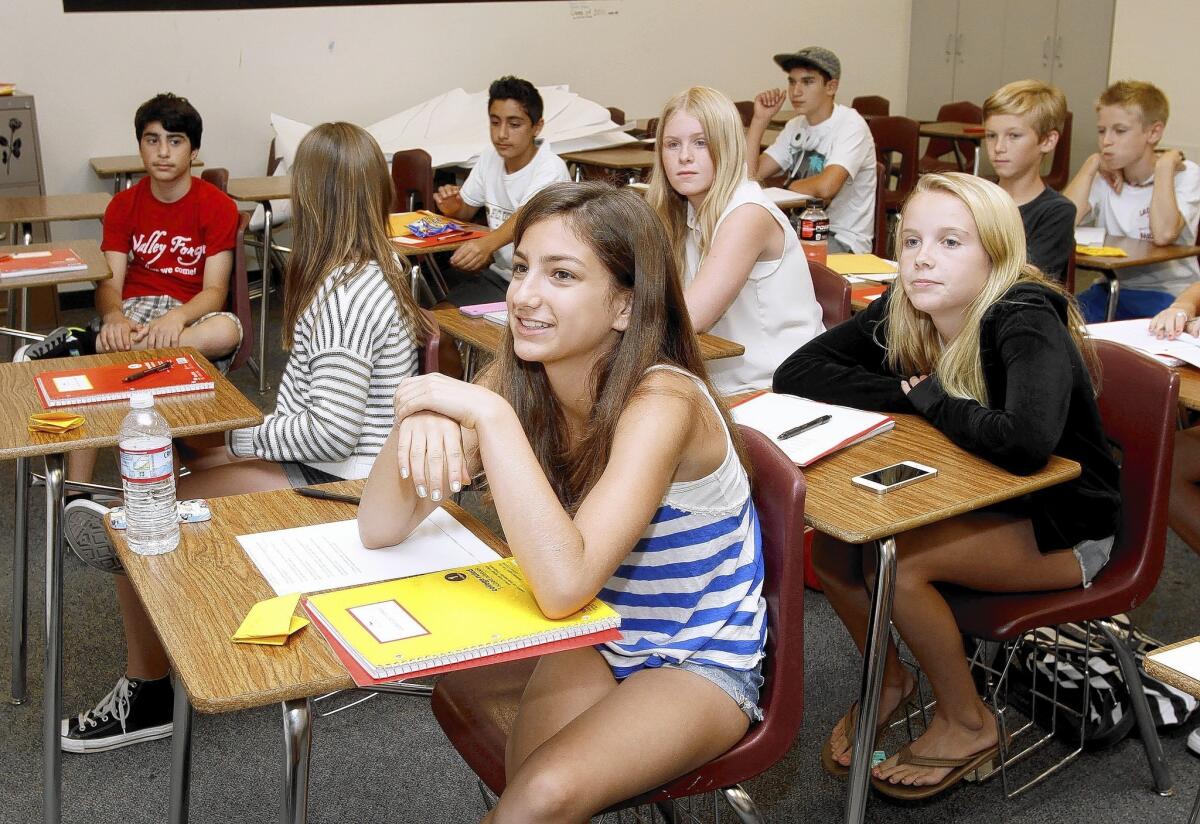The Focused Student: To summer school or not to summer school

- Share via
We just got done with winter break and a new semester is starting. Yet off in the not so far distant future is the decision that might be phrased (with apologies to Shakespeare) as, “To summer school or not to summer school, that is the question.”
Before seeking the answer, let’s look at the larger question of why a student should attend summer school. Summer school has changed a lot in recent decades. While some students need summer courses to make up classes where a grade was low or a subject not really grasped well enough to proceed to the next level in the same subject, there can be many other reasons for seeking out summer school opportunities.
For some, summer school may be a good option for learning something new, getting ahead on required courses in order to free up time for electives or after-school activities during the regular school year, or just being engaged with friends and the learning process.
For students interested in art, music or other creative endeavors, summer school can be a chance to work on new projects or skills, often in a more relaxed setting with fewer students. Summer school can be a risk-free chance to take a class outside a student’s normal comfort zone, in order to explore. And of course there are many sports camps and other specialty programs.
Answer the “Why?” question and you will have insight into the “How?” Summer school now comes in many forms and formats. The first kind of summer school we usually think of is the more-or-less “traditional” form, which is sort of like regular school but with a semester or quarter of work compressed into a few weeks where a student takes only one or two subjects, and has four hours or more of instructional time daily as well as review, instructional videos and homework.
Nontraditional summer schools targeting high-achieving or creative students may include seminars, specialized camps, work on college campuses or internships with an organization of interest. An example, might be the Youth and Government program at the YMCA, art classes at the Art Center, robotics at Caltech or a course at one of the local community colleges. Some of the creative summer schools may offer classes for credit, while others will not be credit courses. Either can be of great value.
And then there are hybrids. These programs require less seat time but more online or other out-of-class work. The advantage for students who are employed or otherwise busy is flexibility in scheduling the out-of-class work. Community colleges are an excellent example of this, and some private campuses such as Oaks Christian and the school I’m affiliated with, Hillside, also offer flexible programs.
Some middle school students use a summer class to preview a high school they are considering. Private high schools such as St. Francis and Prep welcome students on campus. Students may take an English, math or study skills prep class as well as getting involved in a specific sports camp such as football, basketball, soccer or baseball. It gives the student a feel for the campus as well as providing the school a feel for the student.
At the elementary school level, students do not need to worry about college transcripts and usually have a wide selection of fun and skill-building classes to choose from. Assistance League offers a wide variety of choices for enrichment to polishing skills learned during the year. Other schools offer other choices or may offer a particular theme for their summer school, such as a space camp. This might incorporate math, science, art and design into the program. Other private local agencies such as the YMCA or Community Center may offer art, ceramics, language, computers, etc.
Summer time can be learning time and fun time, combined. There are a lot of great summer programs in our area. What fits best will depend on the individual needs of the student.
